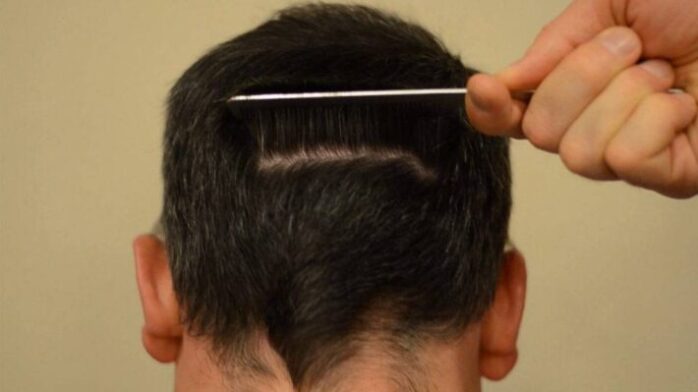
Many men suffer from hair loss and for some of them, it’s something that they can’t deal with. They miss having a good flow and a full head of hair and they simply refuse to go bald. Considering how toupees are a thing of past and they just don’t look good nor have they ever looked good, many seek comfort in the hair transplant.
Now, it’s easy to believe in fairy tales some of the scammers offer you, because, who wouldn’t want to get their precious hair back in just under a week, but the reality is – that’s not happening. So, if you’re considering going for a transplant, you might want to lower your expectations and understand what’s really going on what you can expect from this procedure. Let’s take a look at some of the facts you have to be aware of beforehand.
The Wimpole Clinic have prepared an extensive overview on everything you need to know and consider getting a hair transplant, click here to read more.
1. Surgery Should Be The Last Resort

It seems like the majority of people who suffer from hair loss consider the transplant as the answer to their prayers because it’s a move to solve all their problems. It’s permanent and if the job’s well done, you’re all set. However, in most cases, a transplant is just doing too much for what you need right now and there are alternatives roads to take at this point.
If you’ve just started losing hair, there are other, proven methods to help you gain some of it back or just slow down the balding process and postpone the procedure for a couple of years. One thing you have to remember is that helping maintain what you’re working with is a great foundation to build upon when the time comes. Hair loss just doesn’t happen overnight – it’s progressive. That’s why you have to do as much as you can to slow the process down before you even start thinking about going in for a transplant.
2. One-And-Done? Highly Unlikely

If you’ve been lead to believe that one procedure will be all you need – it’s time to face the truth. That’s not happening. Just take a look at LeBron. He can pay for the best doctors in the world, yet he keeps going back. It’s not that he’s different, no, it’s just the nature of the balding process – it’s progressive. You’ll keep losing it. The one you added will stay there forever, but the one that was previously there will keep falling out.
Also, it is in our nature to keep wanting more. Once you finish your first procedure and you see the results, you instantly see other areas you would want to touch up, so you come back for more. The Clinic of Aesthetic Medicine Myroslava Novosilska have prepared an overview on everything you need to know about FUE hair transplant in Ukraine. Click here to learn more.
3. A Transplant Is Not A Cure For Baldness

We hate to the ones to break it to you, but, transplant is not a cure for baldness. Male pattern baldness is a genetic issue and it’s progressive, meaning, no matter how good successful a procedure ends up being, you’ll still continue to lose hair. That’s the sad truth. That’s why many leading experts in the area recommend medication therapy for about a year first and only then a transplant. A year of medicating can help you regain some of its strength and improve the odds of a successful procedure, on which you can read more if you click here.
4. It’s Not Cheap

To be fair, there are cheap transplant procedures out there, but, you get what you pay for. There are a lot of ways all kinds of different clinics use to lure you in, but don’t fall for it. A good procedure, performed by a qualified surgeon in a well-established and respected medical practice will cost you some money, but it’ll be worth it. It’s just the way it is, there’s no other way around it.
It’s an investment in your appearance, but, unlike cheap t-shirts, cheap hair transplants don’t really do the trick. In all honesty, the shirts don’t either, but they’re not as important. That’s why price shouldn’t be a factor when you do decide to go the surgical route. If you want the best experience possible and a team of experts behind you, you’ll have to spend some extra, but it’ll out be worth it in the end.
5. It’s Not Covered By Health Insurance

Considering how this is not a life-threatening condition and the procedure is virtually a cosmetic one – you can’t count on health insurance to cover the costs of it. Even though baldness can affect your mental health and cause all sorts of emotional trauma – it’s still not enough. That’s why you have to plan these things through. Save up enough money so you can do the operation without suffering a major financial setback.
6. No Scarring? Not Possible

Even though medicine has come a long way in making scars less and less noticeable, there’s just no way to avoid scaring sometimes. Permanent scarring goes hand in hand with the hair transplant. Naturally, many factors determine the severity of the scarring – from skin type and condition to the skill and the experience of the doctor all the way to the type of procedure you’ve undergone. Some will scar more, some less – but all of them will. So, if you happen to stumble upon a ‘scar-free’ advertising – just know that it’s not true.
7. There Are No Hair Donors
Things would be a lot easier if guys with good hair could donate some of theirs, right? Unfortunately, that’s not possible and the only hero to bring flow back to your head is yourself. So, look after your hair and keep it as healthy as possible because you never know when you might need it.
8. You’ll Have To Recover For At Least A Week

No matter the type of procedure, you’ll have to take at least a week off. Just like any other surgical procedure, you have to give your body time to heal and if you want your hair to take, you have to nourish it. That means, no sun, no sweating, no washing – just rest and a lot of fluids. At least you’ll get some well-deserved rest, right?
Finally, there’s one more thing – you don’t have to do it. Some can gladly accept the baldness and just cut all of their remaining hair off. Some of the greatest men ever are bald, like MJ, Dave Chappelle, Jeff Bezos or Bruce Willis only to name a few. However, if you want your hair back, now you know what you can expect from a hair transplant.











